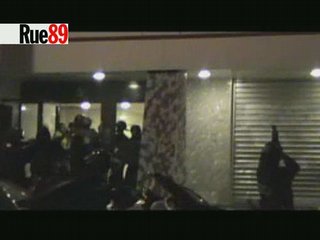Tea time with Les misérables (The Miserables)
Interview with Ladj Ly, director of Les misérables (The Miserables)
“Gavroche in the thicket”: the parallel between the young protagonists of your film and the character in Victor Hugo, was that the starting point?
Yes, of course. I wanted to deal with young people in “tough neighborhoods”. They have been completely abandoned by our elite and left to fend for themselves from a very young age. Most have left school with no hope for the future and face economic misery with unemployment approaching 40%. So it is like “Gavroche”, the same misery in a different time period.
Les misérables depicts a trio of policemen working for the Anti-Criminality Brigade. Why did you want to show that?
Often in tough neighborhoods, the only people representing the state are policemen, so often, these agents are a part of life in the neighborhood. I personally faced these agents at a time when I was doing “copwatch”, where I would film the police when they would take action. One winter evening, I witnessed a police blunder. I filmed it and put it online. Upon further investigation, two cops were suspended.
In Les misérables, the relationship to the writing is quite clear, what feeling do you have for texts and literature?
Part of the story (of the Victor Hugo novel) takes place in Montfermeil. That raised my curiosity. Les misérables as a text touched me deeply, even though I’m not an avid reader. Faced with the monument that is Les Misérables, I had no problem.
I respected the text without making it untouchable. This allowed me to write my own story and to continue to develop the film. There’s a quote by Victor Hugo: “No thinker would dare say that the odor of hawthorn is unnecessary to the constellations”.
In Les misérables, you denounce a kind of daily violence. How did you capture it and why did it interest you?
I grew up in the Bosquet projects, where I started filming in 1997 with my collective, Kourtrajmé Productions. For twenty years, I have filmed this violence on a daily basis. I would like to invite you to watch my documentaries 365 Days in Clichy Montfermeil and Go Fast Connection.
This violence is a part of daily life. It’s become almost ordinary, and I wanted to depict it in the most realistic way possible.
For man, “if you want to know truth, seek out the just”. (Victor Hugo)
Any cinematic coups de cœur in the past year you’d like to tell us about?
Voir du pays by Delphine and Muriel Coulin, and La Vache by Mohamed Hamidi.
Les misérables is being shown in National Competition F7.








